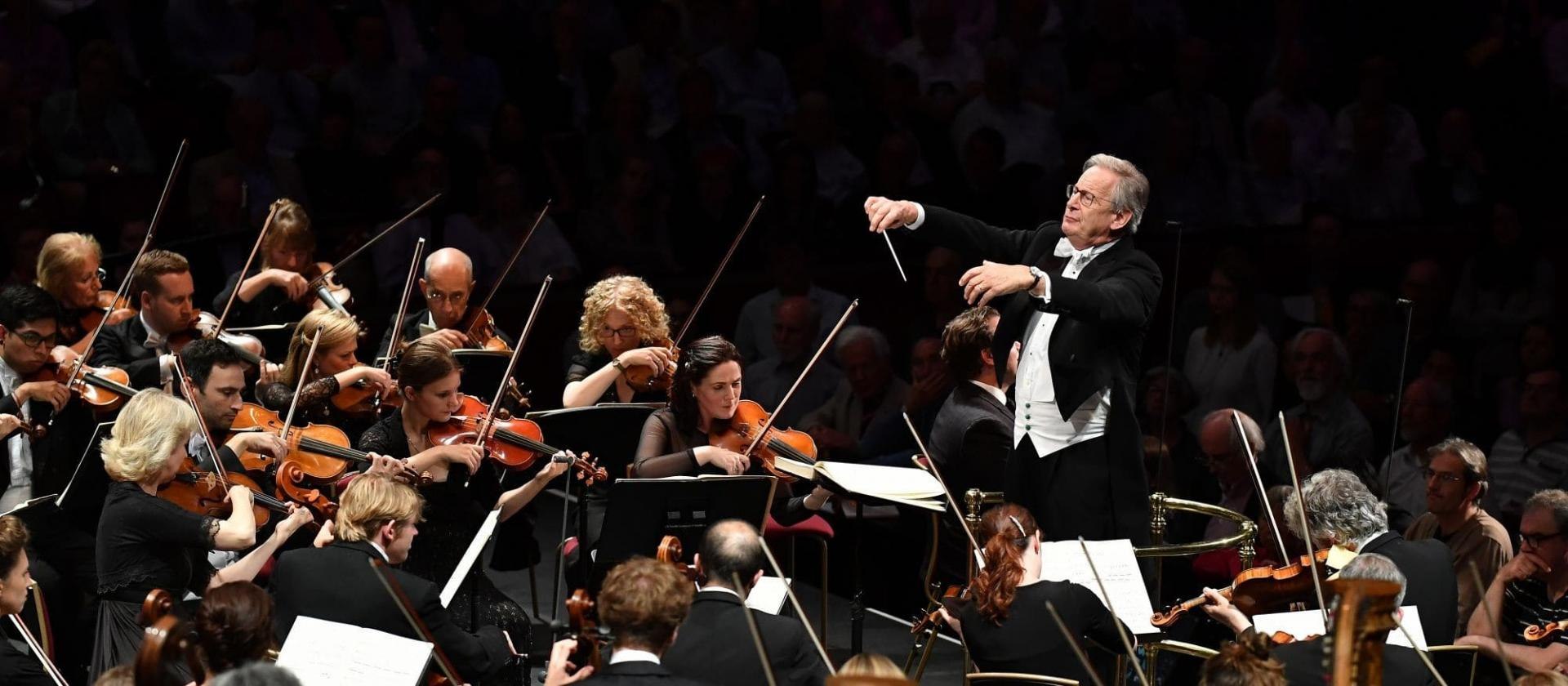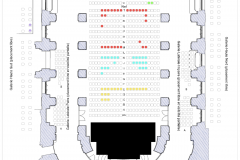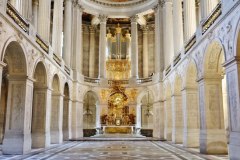Bach, Cantatas I, The Road to Emmaus
June 2026 | ||||||
|---|---|---|---|---|---|---|
Mo | Tu | We | Th | Fr | Sa | Su |
Bach: Cantatas I – The Road to Emmaus | Concert
The Leipzig Bachfest invited its audiences to choose the works for two Bach cantata programs filled with masterpieces: John Eliot Gardiner responded to the public’s preferences by composing two programs based on these suggestions.
This first program presents a luminous dialogue between the tradition of the 17th-century German motet and the masterful art of Johann Sebastian Bach, a guiding figure of Baroque music.
The motet Wie schön leuchtet by Michael Praetorius opens the evening with an exclamation of joy: the divine light personified by the morning star. This poetic and mystical image finds a brilliant echo in Bach’s Cantata BWV 1, built on the same Lutheran chorale. Bach’s rich writing magnifies the text with grandeur and depth, setting the tone for this musical meditation.
With Ich bin die Wurzel by Johann Hermann Schein, the program returns to a more austere form, rooted in sacred rhetoric. The work illustrates the art of the German motet, where polyphony in the service of the Word expresses an embodied spiritual truth.
The cantata Ich will den Kreuzstab gerne tragen, one of Bach’s rare solo cantatas, marks a moment of deep introspection: the acceptance of earthly suffering as a passage toward eternal peace. The writing is poignant, almost operatic in its expressiveness.
The second part opens with another master of the German motet: Heinrich Schütz. His Ich bin eine rufende Stimme embodies the prophet’s cry in the wilderness, announcing the coming of Christ. The musical language is direct, yet filled with fervor.
With the cantata Bleib bei uns, denn es will Abend werden, Bach captures the anxiety of twilight – both spiritual and earthly. This work of striking tenderness immerses us in the believer’s plea for divine presence as night falls.
The motet Ich bin ein rechter Weinstock by Schütz gently and clearly recalls the biblical image of Christ as the vine, the source of life and spiritual fruitfulness.
Finally, Es erhub sich ein Streit closes the program with a triumphant fresco: the cosmic battle between Good and Evil, expressed in an exalting, jubilant, almost celestial musical language.
This musical journey, carried by the excellence of the Constellation Choir and Orchestra under the inspired direction of John Eliot Gardiner, illuminates the theological and artistic breath that runs through over a century of German sacred music.
Prestige VIP – Best seats in the house, including a glass of champagne and the show program.
Prestige – Includes a complimentary glass of champagne.
Program and cast
Jonathan Hanley, Tenor
Alex Ashworth, Bass
The Constellation Choir and Orchestra
John Eliot Gardiner, Conductor
Programme
First part : 50 minutes
Michael Prætorius (1571-1621)
Motet Wie schön leuchtet
Johann Sebastian Bach (1685-1750)
Wie schön leuchtet der Morgenstern, BWV 1
Johann Hermann Schein (1586-1630)
Motet Ich bin die Wurzel
Johann Sebastian Bach
Ich will den Kreuzstab gerne tragen, BWV 56
Intermission
Second part : 50 minutes
Heinrich Schütz (1585-1672)
Motet Ich bin eine rufende Stimme
Johann Sebastian Bach
Bleib bei uns, denn es will Abend werden, BWV 6
Heinrich Schütz
Motet Ich bin ein rechter Weinstock
Johann Sebastian Bach
Es erhub sich ein Streit, BWV 19
Royal Chapel of Versailles
The Royal Chapel was finished in 1710 at the end of Louis XIV’s reign. Jules Hardouin-Mansart proposed the plan to the King in 1669. The First Architect died in 1708 without seeing the end of the works which were taken over by his brother-in-law Robert De Cotte. The reigning monarch only came for major religious festivals where he received communion, for ceremonies of the Order of Saint-Esprit, for the baptisms and weddings of the royal children celebrated from 1710 to 1789. This exceptional palatine chapel was also used for a wide range of religious ceremonies, including the marriage of Archduchess Marie-Antoinette with the future Louis XVI.
Above the altar, around the organ by Clicquot decorated with a fine relief of King David, played by great masters like François Couperin, the Chapel’s music, famous all over Europe, sung motets everyday during all religious services. Today Handel’s Dixit Dominus or Messiah, Bach’s Oratorios, Magnificat, Cantatas or Passions, Pergolesi’s Stabat Mater or Charpentier’s Te Deum ring out in this majestic architecture.

 EN
EN DE
DE IT
IT FR
FR ES
ES RU
RU JP
JP RO
RO
 Seating plan
Seating plan 